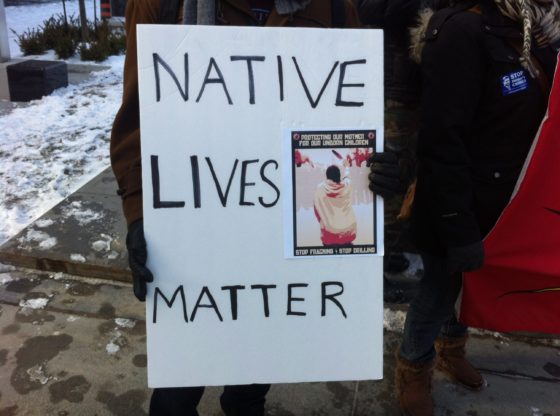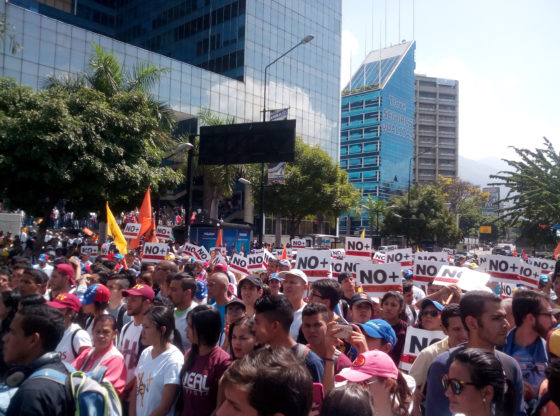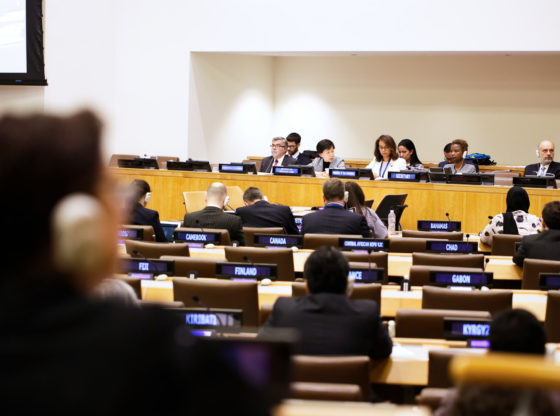For over 150 years, Hong Kong was a UK territory. On the 20th anniversary of its formal handover to China, Will Smith assesses how the ‘One Country, Two Systems’ model has fared, and asks whether the UK is adopting a sufficiently robust stance towards recent developments in the territory.
The celebrations that marked the twentieth anniversary of the Hong Kong Special Administrative Region (HKSAR) have prompted much soul searching across the UK. The reason for this is fairly clear. There are many, former governor Chris Patten among them, who profess to be keenly aware of the legal and moral obligations of the UK toward a territory that it subjected to colonial rule for over 150 years. But this awareness has yet to translate into any clear or coherent account of how the UK government can craft an effective and defensible policy toward Hong Kong, particularly in light of the shadow cast by Brexit and questions over the UK’s future status and clout in the global order.
THE POST-HANDOVER PERIOD
The mood in Hong Kong since its handover from British colonial rule in 1997 is increasingly characterised by division and uncertainty. It must, though, be acknowledged that the current situation is perhaps not as fraught as some of its population feared prior to 1997. There was, to be sure, no little pride in escaping from colonial rule under the UK. However, mixed in with this sentiment was anxiety about the future prospects for a resolutely capitalist and comparatively liberal society coming under the auspices of a communist authoritarian regime. This anxiety underpinned considerable local anger at the ungenerous decision of the UK government not to grant persons born in Hong Kong under colonial rule the right to acquire UK citizenship.
The mood in Hong Kong since its handover from British colonial rule in 1997 is increasingly characterised by division and uncertainty.
The handover, in fact, proceeded far more smoothly than some had expected. There was remarkable continuity in terms of legal rights, economic growth and - initially at least - political stability. This may be attributed to a number of factors, but the designers and implementers of the ‘One Country, Two Systems’ model that shaped Hong Kong’s Basic Law after the handover must take much of the credit. The upshot of the Sino-British Joint Declaration of 1984, it guaranteed that “The socialist system and policies shall not be practised in the Hong Kong Special Administrative Region, and the previous capitalist system and way of life shall remain unchanged for 50 years”. Though somewhat unusual in effectively upholding capitalism as a de facto constitutional guarantee, the Basic Law performed the important function of bringing much-needed stability and security to Hong Kong. The capacity of the Hong Kong government to remain calm in the face of the Asian financial crisis, including a successful effort to resist concerted speculative attacks on its currency and stock market, doubtless contributed to a sense of postcolonial confidence around the turn of the century.
The Basic Law worked in significant part because it took up roots in a functioning judicial and administrative system. But it also played - and arguably still plays - a crucial symbolic role in underpinning a collective sense of political identity among Hong Kong’s population. That identity was founded upon a widespread sentiment that the territory was rightfully part of China (‘One Country’), but with its own quite distinct institutions, values and practices (‘Two Systems’). This sentiment could be activated by a confident and capable civil society, as reflected in the successful mobilisation of opposition politicians, the legal profession, activists, and large sectors of the public against proposed national security legislation in 2002-03. The Basic Law requires the introduction of security measures, but the government’s proposed legislation contained clauses and concepts widely regarded as incompatible with the freedoms enshrined within the Hong Kong legal and political system. The underlying ethos of ‘One Country, Two Systems’ thus proved to be an important resource for those seeking to resist what is perceived as a creeping authoritarianism. It also acted as a spur for increasingly assertive demands for democratic reforms said to be stipulated by the Basic Law, most notably the introduction of universal suffrage.
THE ROAD TO OCCUPY
The societal conflict surrounding the proposed national security legislation proved a foretaste of the escalation of tensions over the coming years. There emerged a marked split between those who see Hong Kong’s future in terms of ever closer economic and political cooperation with the Mainland, and those who hope to preserve a more arms-length relationship through pushing for greater democratic freedoms. This divide is best illustrated through polarisng debates about the trajectory of political reform in the territory. There are differences of opinion about the status of non-elected ‘functional representatives’ in Hong Kong’s legislative assembly and—more especially—the power of the ‘Election Committee’ (EC) to select the Chief Executive (CE) of the HKSAR. The functional representatives secure a permanent majority for pro-establishment forces within the legislature, while the EC is perceived as a rubber stamp for Beijing’s preferred candidate as CE.
The underlying ethos of ‘One Country, Two Systems’ thus proved to be an important resource for those seeking to resist what is perceived as a creeping authoritarianism.
These simmering tensions exploded onto the streets in late 2014, with the largest and most disruptive public protests that the HKSAR had seen. The trigger for these demonstrations was an electoral reform package offered by authorities in 2014, which failed to satisfy pro-democratic opinion due to proposed restrictions on candidates who could stand for election as CE. There had, in truth, been an extremely long build-up to these protests, driven by increasing disillusionment with the capacity to achieve reform through institutional means.
This disillusionment arose, in part, because of lack of concessions from Beijing, but also due to damaging splits within the pro-democracy movement. Protest seemed a more potent means of achieving gains, as evidenced by a successful campaign - which included university students and school pupils - against a national education programme designed to inculcate patriotic sentiment. The threat to stage a mass, unlawful ‘occupation’ of the City’s financial district in the event of the government’s unwillingness or inability to offer an acceptable reform package had been announced well in advance, as part of an effort to pressure intransigent officials into concessions.
The occupation, which in the event was concentrated around government offices in Admiralty rather than the financial district in Central, escalated due to a dynamic familiar to those who study nonviolent protest. The local media disseminated images of police officers using tear gas and pepper spray against peaceful - and primarily young - protesters. This provoked a surge of sympathy and support for the movement within and beyond Hong Kong. The ubiquitous yellow umbrellas that protesters used to protect themselves remain a potent emblem of the protest.
The protesters were able to ride a wave of public support for nearly two months, but the momentum and unity of their movement gradually dissipated. The government, under the guidance of Beijing, refused to make any substantive concessions. It held fast to the more controversial elements of the reform proposals and refused meet the demands of protesters. The protest thus failed to achieve its objectives, but the reform package was dead in the water all the same. It failed to secure sufficient support across the community and was surprisingly rejected in the legislative assembly, partly due to an embarrassing ‘miscommunication’ between the pro-establishment parties.
THE RISE OF LOCALISM
The fallout from the Occupy protests, and the subsequent collapse of momentum for political reform, has triggered further societal polarisation. The radical elements of the pro-democracy movement have turned toward ‘localism’, further stressing the ideological and cultural differences between Hong Kong and the Mainland. This movement has its roots not merely in divides about political reform, but also steadily growing resentment about the perceived detrimental impacts of Mainland tourists and investors on the territory. There are some - particularly among the alienated and angry ranks of the young - who openly flirt with the language of independence for Hong Kong but there appears to be little appetite for these views among the broader population. Beijing, of course, is vehemently opposed to such separatism and has cited its rise as a justification for more punitive measures. The authorities faced local and international criticism for their heavy-handed attempts to disqualify localist politicians from the legislative assembly, but in truth the public has been rather slower to rally to their cause than it was to pepper-sprayed students.
There are some - particularly among the alienated and angry ranks of the young - who openly flirt with the language of independence for Hong Kong but there appears to be little appetite for these views among the broader population.
A recent development that has caused more unrest is the apparent abduction by Chinese security forces of a number of booksellers. The booksellers were taken from a number of territories across East Asia, including Hong Kong, without the apparent knowledge of local police or public officials. Their ‘crime’ is to be involved in the publication of a number of somewhat salacious books about the private lives of senior officials and leaders in the Chinese Communist Party (CCP).
Another case, perhaps even more remarkable, is the removal of the Chinese billionaire Xiao Jianhua, from the Four Seasons Hotel in the Central District of Hong Kong. Once again, it is thought that Chinese security forces were behind the abduction, with speculation that it might relate to Xiao’s knowledge of the financial affairs of prominent CCP officials. These kinds of ‘disappearances’, routine across the Mainland but not in Hong Kong, add further fuel to anxieties about an alleged erosion of the ‘One Country, Two Systems’ model. They also contribute to the general air of disquiet, which formed the backdrop to the lavish celebrations - including a much-trumpeted state visit by President Xi - that marked the anniversary of the UK-China handover.
THE CHALLENGE FOR THE UK
John Major, speaking before the handover of Hong Kong, had pledged that “If, in the future, there were any suggestions of a breach of the Joint Declaration, we would mobilise the international community and pursue every legal or other avenue available to us”. There is, to be sure, an art to crafting political rhetoric that both sounds tough and is sufficiently ambiguous to allow for considerable discretion in its interpretation. The UK might, with some plausibility, claim to have followed through on Major’s pledge: regular reports are made to the UK parliament on the situation in Hong Kong; senior government officials have, on occasion, voiced public concerns about alleged breaches of the Declaration. And British officials have given short shrift to the view - expressed by some Chinese officials - that the Declaration is now merely a ‘historical document’ that carries with it no binding obligations.
This view is certainly echoed by many in the Hong Kong pro-democracy camp who have become increasingly disenchanted by what they perceive as a lack of support for their cause from Britain.
However, this somewhat modest rattling of the UK sabre is far from sufficient for many. Chris Patten is particularly critical of what he sees as the “craven” and “demeaning” approach of the United Kingdom to what is happening in Hong Kong. He complains that “on the whole, we have continued to operate under the delusion that unless you bow low enough you will never do any business in China”.
This view is certainly echoed by many in the Hong Kong pro-democracy camp who have become increasingly disenchanted by what they perceive as a lack of support for their cause from Britain. The future course of UK-China relations remains uncertain, but the impending exit from the European Union, with all the attendant economic and political risks, means that a bolder UK stance towards the HKSAR is highly unlikely.
William Smith is Associate Professor in the Department of Government and Public Administration at the Chinese University of Hong Kong. He teaches and researches in contemporary political theory and is the author of Civil Disobedience and Deliberative Democracy (Routledge 2013).
Feature image: the Hong Kong Skyline at night. Image: Samuel Louie [CC BY-SA 3.0]










